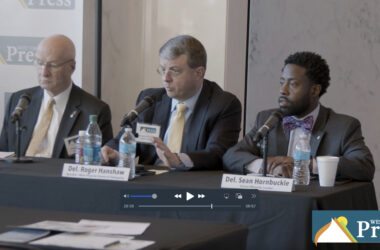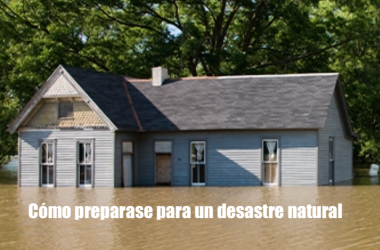By CHARLES BOOTHE
Bluefield Daily Telegraph
BLUEFIELD — Dr. William M. “Bill” White has been busy tackling his new role as a member of Gov. Jim Justice’s Cabinet.
The Bluefield native, who has been a member of the state Board of Education since 2010 and would have been in that position until 2019, is now leading the Herbert Henderson Office of Minority Affairs and after just more than a week he said his work is off to a good start.

White said he will go after federal funds and any other source of revenue to help him do his job.
“The mission of this office is really to create a forum for addressing minority efforts and assessing the strength of the programs and to provide effective programs and services to minorities,” he said. “Primarily, we want to make sure all minorities in the state are included in every aspect of employment, services, education, you name it.”
But in a state like West Virginia, “you don’’t have the luxury of doing things like a state with an extremely large percent of minorities,” he said. “The need to invest specifically into minority issues is great.”
White said the biggest problems here are poverty, education and jobs, and those issues apply to citizens all around the state.
“In order for this state to do well, I see my job as getting everyone involved in the process,” he said.
White includes many residents in the “minority” category, including residents of counties like McDowell and Boone, where unemployment, drug addiction and incarceration are common.
“They don’t have jobs,” he said. “In a lot of cases, they are people who are forgotten about.”
These problems around the state will be front and center for his office, and it will be a matter of meeting and talking to people, gathering information and compiling the research needed.
“I’m on the Governor’s Cabinet and I report directly to the Governor,” he said. “Once we do our research, we report that information back and we will work with them to make sure policies are put into place to resolve these issues.”
But the key is to identify what all the issues are, he said, then start the process of developing strategies to resolve them.
“You just can’t shoot from the hip,” he said. “That’’s not the best way to go about it. These strategies should be based on valid research data. I wish our federal government would do it that way.”
White said people should realize that diversity is common in the state.
“We have diversified communities,” he said. “There is a lot of diversity in Bluefield and all over the state. It’s going to be critical that we understand how to value that diversity and make sure the understanding continues to grow.”
White said learning about and appreciating diversity is crucial, especially for youth.
“We need to stop and look at the importance in making sure our kids are prepared to deal with a diverse world,” he said. Although diversity is here, once they leave and travel to other places, “it’s a whole different kind of diversity” that they may not be used to.
“We really need to embrace and learn about other people (and cultures),” he said. “We have to make sure we do that.”
White said he had already started working in this area on the board of education.
“We were reviewing the multi-cultural policies at the state level, guidelines that are 30-plus years old,” he said. “It’s changed in 30 years. We have changed a lot.”
White said one of the initial things he will do is go on a “listening tour.”
“I want to see what people think their issues are and what solutions they may have,” he said. “We want to put together an advisory board that will take care of the entire state, including people from all different races, religions and backgrounds.”
Hosting town meetings is on his agenda as well, he said, and dialogues with many organizations, but on an ongoing basis.
“You can’t do it once and go away,” he said. “You have to look at identifying people in every area that can be our ears, our eyes, our voices. They can bring back information and let us know of events we may want to attend.”
But the budget will be, as it is in every aspect of state government, a priority.
White said he has already talked to Sen. Joe Manchin (D-W.Va.) about assistance, and that Manchin has volunteered his staff to help search for federal funding. He will talk to Sen. Shelley Moore Capito (R-W.Va.) as well, he added, and state legislators.
“There’s a lot of money out there and it’s not all government,” he said. “Private funds are there as well as foundation money.”
White said the development of public/private partnerships can be useful.
Regardless of the source of the money, though, one of the crucial goals that everyone is working for is job creation.
“It is in everybody’s interest that we succeed,” he said. “We need to get every person who is able back to work. We want to get everyone in the workplace. It’s the morally right thing to do. And the more people you have working, the smaller the deficit will be.”
White said West Virginia is recovering from the decline in the coal industry as others states, like North Carolina, had to recover from the decline in the textile and furniture industries.
The population is becoming more diverse, and jobs must be as well.
“We are where North Carolina was about 15 years ago when they lost their textile industries,” he said. “But they diversified. They brought in banking to Charlotte and high tech to the Research Triangle area (Raleigh-Durham).”
White said many things can be done to diversify jobs and provide quality jobs.
“We don’t need to think outside the box,” he said. “We have to get rid of the box, throw it away, and start thinking all over again.”
White said tackling these issues presents many challenges, but possibilities as well.
“This is an absolutely incredible opportunity,” he said. “We can set precedents and be an example for a lot of states throughout the country, like Wyoming, Maine and Vermont, states with one or two major cities and a lot of small cities and towns, and rural areas.”
White said what West Virginia does “could be a model to be used to help other states” with relatively small minority populations in predominantly rural/small town areas.
“I don’t want to get caught up in the negative,” he said. “We also need to highlight the things we are doing well.”
White has already witnessed an example of the positive.
“We had a tremendous program last night with a kickoff of Black History Month,” he said. “We had some kids who were” presenting posters depicting the life of Dr. Martin Luther King Jr.
“Mingo County kids won first place,” he said. “They are white kids. This is something to be proud of. We want everybody to get involved.”
White said he will meet with the Governor and his chief of staff weekly.
“They have pretty much gotten out of the way and let us do our jobs,” he said. “I am big on communication. I make sure they are aware of what is happening in this office.”
White said transparency is the key and he wants to make sure he and the Governor are always on the same page and going in the same direction.
Although his journey in life has taken many turns, working for social justice has always been important to him, so this job was welcome.
“I’m humbled by it,” he said. “I think it’s great somebody sees you as a kind of person who can do this. For me, at the twilight of my career, being at a job like this … you never know where God will send you so you have to be prepared. This is a long way from a research chemist.”
White said he graduated from Park Central High School and Bluefield State College, majoring in chemistry and mathematics, and he is proud of the quality of education he received.
“When people were bashing education in West Virginia I talked about my experience,” he said. “When I was growing up, no matter how poor or rich you were, you got the same quality education. My public education I got in West Virginia prepared me to sit with people from all over the world. It prepared me well to be an active participant in those environments.”
After obtaining his degree from BSC, he earned a doctorate in leadership and change from Fielding Graduate University in Santa Barbara, Calif. He also holds a graduate certificate in management and leadership from Harvard University.
White has been a research chemist and an executive in the pharmaceutical industry as well as several leadership positions in higher education. He served six years as president of the University of Southern California’s corporate advisory board for the industrial social work concentration for the Graduate School of Social Work and worked for more than 15 years as an adjunct professor and course designer for the University of California at Davis.
White is the former dean of Mountain State University’s School of Graduate Studies in Beckley. He is the founder and CEO of The Management Development Group, a California corporation that specialized in organization development consulting.
Although he now is working full time in Charleston, White said he will remain a Bluefield resident.
“I have a home in the historic district of Bluefield, up by the Elks Lodge,” he said. “I love it up on that hill and I’m not going anywhere.”
See more from the Bluefield Daily Telegraph





